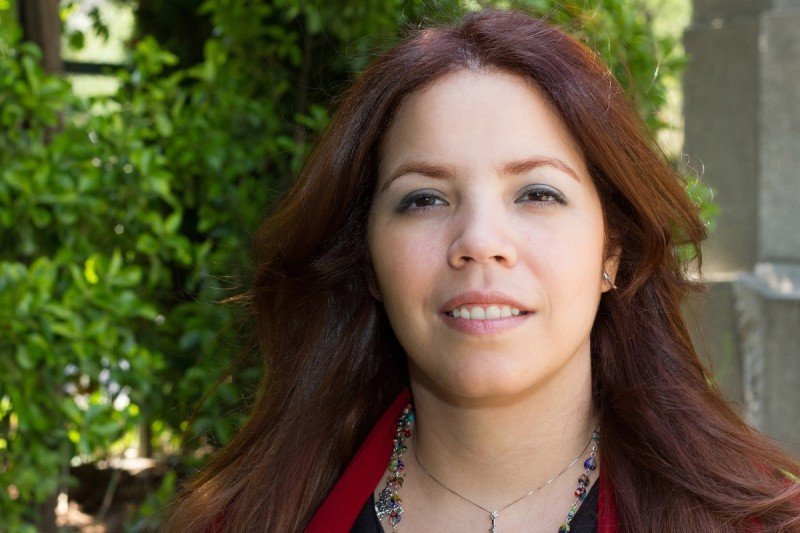
Rosario Costas-Muñiz is a psycho-oncologist focused on the needs of the Latino community.
As a young girl growing up on the south side of Puerto Rico, Rosario Costas-Muñiz, PhD, felt a calling to help people with the mental health side effects of a cancer diagnosis. Today, she is a psycho-oncologist at Memorial Sloan Kettering Cancer Center. She focuses on the mental health needs of people diagnosed with cancer within the Latino community.
Cancer affected many members of her close-knit family. One of her grandfathers was diagnosed with prostate cancer, her grandmothers both died from breast cancer, and her mother was also diagnosed with the disease. Her father was diagnosed with colorectal cancer at age 50, when Dr. Costas-Muñiz was just 10 years old.
Despite her young age, Dr. Costas-Muñiz was struck by the cancer disparities that existed for people who lived, as her family did, in an area with limited healthcare resources. She watched as family members and others in her community struggled to get access to comprehensive cancer care following a diagnosis.
She also saw the ways people changed after a cancer diagnosis and treatment. Someone’s mood and character could change. They might experience depression, anxiety, or other mental health conditions. Family members were sometimes negatively affected by the increased emotional and mental load of the cancer experience and caregiving.
Decades later, these disparities still exist and Dr. Costas-Muñiz is on a mission to help overcome them.
Mentored by a Psycho-Oncology Giant
Dr. Costas-Muñiz came to New York in 2011 looking for training and research opportunities in the field of psycho-oncology, which combines oncology and psychiatry. She joined MSK through a fellowship opportunity and became a faculty member in 2014.
“The opportunities for networking, building research programs, and jumpstarting initiatives can be limited in some areas of Latin America,” Dr. Costas-Muñiz says. “At MSK, one of my mentors was Dr. Jimmie Holland, an incredible and humble person whose superpower was to connect people. She showed me the importance of team science and advancing the field not just in the communities MSK serves but around the world.”
Widely recognized as a founder of the field, Dr. Holland and her work helped psycho-oncology care become a vital part of the comprehensive cancer care provided today by centers such as MSK.
Latino People Face Barriers in Accessing Care
Some communities, including the Latino population, can face barriers when trying to access mental health care. One barrier is the lower rate of insurance coverage among Latino people. There is also a lack of providers who speak Spanish and understand Latino culture.
Almost all the people Dr. Costas-Muñiz treats at MSK are Spanish-speaking or bilingual.
“Sharing a similar linguistic and cultural background can help strengthen the care partnership between a patient and their provider,” she says.
Improving Mental Health Care for Latino Patients Globally
As Dr. Costas-Muñiz advanced her career and published new psycho-oncology research, people around the world noticed.
“I started hearing from experts at cancer centers in Latin America who wanted to connect and collaborate with others in the field of psycho-oncology,” she says.
With these colleagues, Dr. Costas-Muñiz co-founded an international training and education collaboration called FIPOL, or Formación de Investigación Psicosocial Oncológica Latinoamericana.
For clinicians and researchers interested in psycho-oncology, FIPOL aims to be a resource to help them:
- develop and grow Latino-focused mental health care programs locally
- learn about the newest evidence-based practice developments in the field
- access opportunities for training and research
FIPOL includes collaborators from MSK and throughout Spain and Latin America, including Central America, South America, and the Caribbean.
“FIPOL allows people interested in this field to gather and learn from each other, develop professionally, share ideas, and collaborate on research,” Dr. Costas-Muñiz says. “It is a community of people dedicated to developing and implementing effective mental health interventions for the Latino population, from telehealth to palliative care.”
Focusing on More Than Just Cancer
During the COVID-19 pandemic, a panel of more than two dozen FIPOL experts collaborated to create new guidelines for how to use telehealth for mental health care in Latin America. Other efforts include adapting research questionnaires for local areas, studying compassion fatigue and burden in healthcare providers, and changes in the practice of psycho-oncology during the pandemic.
“Our work is both local and international,” said Dr. Costas-Muñiz. “We can improve mental health care at home by listening to our Spanish-speaking communities. By sharing what we learn, we can help improve it around the globe.”